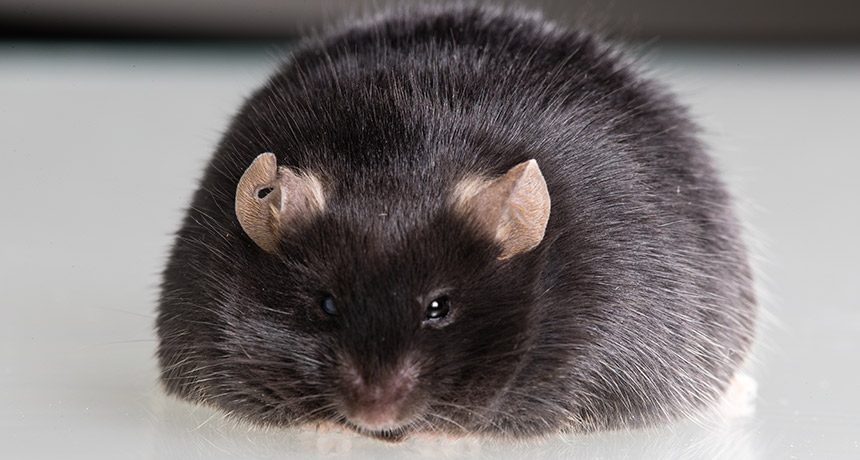In mice, a high-fat diet cuts a ‘brake’ used to control appetite
The result shows how food can change the brain’s drive to eat

CHOW After weeks on a high-fat diet, certain cells showed less activity in part of the appetite-controlling part of the brain in mice, results that suggest the fatty diet encourages overeating.
Janson George/Shutterstock
A gut-busting diet may set the brain up for more of the same.
After mice ate fatty food for just two weeks, cells in their brains that send a “stop eating” signal were quieter than those in mice that didn’t eat high-fat chow, researchers report in the June 28 Science. The result helps untangle the complex relationship between food and appetite, one that can become muddled when people overeat.
Because food is crucial to survival, the brain has built-in redundancy — a multitude of overlapping pro-food systems to make sure animals eat enough. Neuroscientist Garret Stuber of the University of Washington in Seattle took aim at one brain area known to be involved in eating behavior.
Called the lateral hypothalamus, this brain structure contains a large number of diverse cells. Stuber and his colleagues looked at gene behavior in single cells there, and found that one group, called glutamatergic nerve cells, showed particularly big changes in which genes were active when the team compared lean mice with obese mice.
Earlier work suggested that these glutamatergic cells acted like a brake on feeding: When the cells were artificially blocked from firing signals, mice ate more food and gained more weight. But it wasn’t clear how these cells actually behaved over a more natural shift from leanness to obesity.
“Obesity doesn’t just happen overnight,” says Stuber, who conducted some of the work while at the University of North Carolina at Chapel Hill. To study that gradual transition, the researchers began feeding mice high-fat mouse chow, while periodically using a sophisticated microscope to look at the glutamatergic cells’ ability to fire off signals.
Two weeks into the binge, even before the mice plumped up, the nerve cells already showed more sluggish activity, both in their spontaneous behavior and when an animal was given a sip of sweet liquid. That reduction continued as the animals grew larger, for up to 12 weeks, the researchers found. These cells’ “activity is going down as a function of a high-fat diet,” Stuber says.
The results imply that “these cells’ decreased activity is removing the brake on feeding and obesity,” says neuroscientist Stephanie Borgland of the University of Calgary in Canada, who wrote a related commentary in the same issue of Science.
The researchers don’t know whether these cells would regain their normal behavior if the mice stopped eating high-fat food and shed weight. It would be technically hard to keep monitoring the same cells for the weeks or months it would take for the mice to normalize their body weight, Stuber says.
While the results offer a clear example of cells that control feeding behavior in mice, it’s hard to say whether similar appetite-suppressing nerve cells are at work in people. Brain-imaging experiments have shown that the same brain region, the hypothalamus, is involved when people shift between being hungry and full.
Stuber points out that while these cells in mice seem particularly responsive to a high-fat diet, obesity probably affects a much wider population of cells. “This is probably happening across the brain,” he says. Understanding those complex interactions might ultimately point to better strategies for managing human appetites.







